2022 Week 4: Youth and Education
Cionne Gates | By Peaceful Means
Coming into the program this time for the second year in a row, I wanted to establish professional intimate relationships with my coworkers while also understanding positive approaches for interacting with the children. Last summer, my goal was to make the campers laugh, which I felt I exceeded surprisingly. This summer, I am working with the oldest age group (10-14 years old) in comparison to the young kids (3-7 years old) last year, so my teaching for peace camp has to be catered to a mature mindset. Although they may be older, this primitive period in adolescence prompts a lot of questioning in themselves and the world, which can be insightful and challenging as their mentor. Initially, I thought it would be more difficult to capture their attention because we are close in age, but thankfully they respect my demands and listen to the discussions I prepare for them. One obstacle that keeps recurring is the drama between females in the camp, but this helps prepare me for sharing healthy conflict resolution strategies when dealing with discomfort. Nonetheless, the obstacles presented to me during this peace camp experience has challenged me outside of my comfort zone in teaching style, which upholds my priority of pushing the boundaries of comfort in both the workplace and my personal life. Even so, the schedule of in person camp gives me more structured balance to organize all the lesson plans and interactive activities I create for my class every day. Since we only have two hours together, I dedicate our time on capitalizing the connections with each other while simultaneously providing more positive insight on the influential leaders making a difference across the world. Additionally, we have a journal question that I pose at the start of class every day, and this helps encourage internal reflection and outward growth for both myself and the campers. Even though it has only been one week, I feel like my summer experience will be a transformative time to remember.
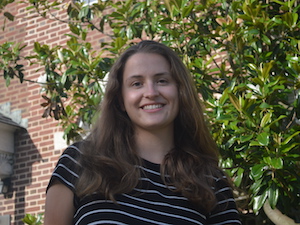 Hélène Girard | Village Learning Place
Hélène Girard | Village Learning Place
I think my goals for the summer have changed. At first (I remember this from a previous blog), I wanted to specifically focus on raising scores for math and literacy, but now with a certain amount of experience at the Village Learning Place, I think time is too fleeting to have those as my overarching goals. Yes, during the 2 hours of math and 2 hours of literacy that we get into during the week, I go 110% into trying to let the kids leave with one more skill, be it exponentials or dividing fractions or finishing the excerpt they were given about Duke Ellington. However, the main thing stopping these kids is not lack of education; they are plenty intelligent about the things they like. It’s apathy that stops them in their tracks. It is extremely difficult to get them to look out from the phones, stop engaging with Instagram/TikTok/GANGSTAR New Orleans (whatever that is)/Dragon Ball Z, and start engaging with the material.
I know it’s borderline Boomer behavior to complain about how often the young-uns are on their phone, especially when I am on my phone as often as they are, just at different times (namely, when I’m not at work). Puberty is a wrench into an established childhood, and I can’t imagine the hormonal smorgasbord that’s pinning them down right now. There are some times when they do seem very engaged with the task at hand: when things were going smoothly in our scooter project, they were all fighting to be on the frontlines of bolting and finding parts, but as soon as a correction needed to be made, they were in a combination of play fighting with metal bars, yelling at each other about it, or removed to a corner updating their “For you” feed. Next week, we are starting an electric bike, and the expectation is that they will lead themselves and do the correction themselves without me or Mr. Daniel. I am also planning on incorporating another theme into our “Character Education” time; we are finishing our unit on humor (What makes something funny? Why is it important to laugh at yourself? Can you be happy by yourself? What’s the difference between laughing ‘at’ vs ‘with’ someone?), and I would like to have time to explore another topic: preparing to be in charge. What things are important in community leadership? How can you take charge of your own life? What things are important to consider when you make a decision? Why is important to understand the past and the people who used to be in charge? My hope is that it might spark some interest within them to plan their future. 7th grade in Baltimore is the time when your grades start to be recorded in order to decide what high school accepts you and in turn, what quality of education you will have access to. The rest of their lives start frighteningly soon, and they should be at least somewhat prepared.
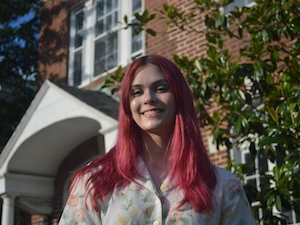 Helen Lacey | Dent Education
Helen Lacey | Dent Education
I liked the prompt from last week about describing a typical day at work for you, but I didn’t respond to it because I had yet to settle into a regular routine at my internship. Now that the summer program has officially started, I have a more regular schedule and can describe my average work day. I start the day by arriving at one of the three sites that I work at with my site supporter: Upsurge, Impact Hub, or the Loyola library. I then help coaches at the sites with anything they may need while setting up the room to prepare for students. If it’s the beginning of the week, I also send the coaches their “lunch buddies” for the week, a system where each Denter is assigned a random partner and a few questions for them to get to know each other during their lunch period. Denters begin coming in around 9:30 and are fully present by 10. Once all the students have clocked in, I transfer that data into YouthWorks. If any students didn’t clock in, I contact their coaches to double-check that they’re absent and if they are I contact the Denter/their parents to note why they’re absent. Usually, the attendance process takes an hour or two because of the volume of Denters. I also pick up the food deliveries for lunches during that time. After that, I typically sit in with the Denters during their lesson and take photos/create Instagram stories. I then have lunch for an hour, and after lunch, I meet with my site supporter to see if there are any tasks she needs help with that day, like contacting/finding speakers for speaker events or organizing site socials. If there’s not much she needs help with, I continue to engage with the Denters during their lessons. The students leave at 4, and after that, I help clean up the classrooms and discard/donate any uneaten lunches. I sometimes have a brief meeting with the Dent team at the end of the day to check that everything is running smoothly. That’s a typical day in my life this week, but I’m sure things will continue to change as the weeks go by!
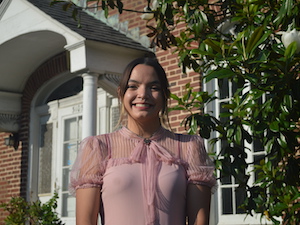 Mahalia Munalem | Hampden Family Center
Mahalia Munalem | Hampden Family Center
This summer, my goals were to gain practical experience in a youth-centered environment, develop new knowledge of the Hampden neighborhood, and connect with youth through meaningful relationships. I think that half-way through the internship I have already accomplished all three of these things but that I will continue to do so on a deeper level during the rest of my internship at the Hampden Family Center. As I have mentioned in previous posts, although tutoring and coaching youth over the years partially prepared me for this position, I couldn’t have been prepared for being “camp counselor” as the kids call me. I have learned that working with youth full-time requires a considerable amount of patience and understanding which makes it all the more crucial that teachers, child-care workers, etc. are adequately compensated for the time and energy that they put into teaching and entertaining young people. With 3 adults and 25 kids being a lot to manage, I can’t imagine how hard it is to manage 30+ like many public school teachers. I have also been trying to explore Hampden more by shopping around the avenue on Fridays when I get off work early, asking the HFC team to share more about the neighborhood, and walking/biking different routes when I have the opportunity. Occasionally, I will encounter some of the kids and their families on their way to the center as well or a familiar face that I’ve seen in the same spot several days throughout the summer. The most important and impactful way I interact with Hampden though, is through the time I have been spending with the campers this summer. Not to brag or anything, but at least five of the kids have come up to me and told me that I was their favorite counselor. I hope that this means I am fulfilling my goal of connecting with the campers and creating a safe space for them where they can feel comfortable and cared for.
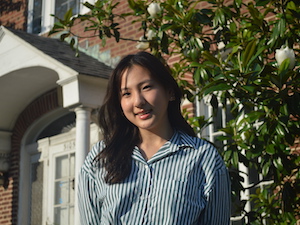 Sophia Park | Child First Authority at Calvin Rodwell Elementary/ Middle School
Sophia Park | Child First Authority at Calvin Rodwell Elementary/ Middle School
This week was definitely a big change from the past few weeks. We finally had our students come in and join us for the Johns Hopkins Center for Talented Youth (CTY) Program. Unlike these past few weeks where I had a relatively calm schedule, this week was hectic. Each classroom was assigned a teacher and a teaching assistant, however, from the get go there were already unexpected absences. Some teachers and teaching assistants would suddenly be unable to come into work, and I was immediately sent into action. I began working as a teaching assistant for a first grade classroom where I came up with fun activities to do during activity sessions. Assuming my role as Ms. Sophia, I started tower-building competitions, taught tiktok dances, and led colouring activities. At first, it seemed fairly simple, but it only became more difficult as time progressed. In the afternoons, my first graders became quite restless and some would start throwing tantrums. I learned how to pull these kids aside and listen to what they had to say but also maintain some sense of authority. I realized that there’s a careful line between being patient and being a pushover. It was extremely hard for me at first to just accept that I can’t fix everyone’s problems. However, after a full day in, I found that the best solution is to sometimes just give these kids a bit of space. By day three, I was moved to substitute for a fourth grade teacher. My main struggles began here. There were no lesson plans available for this teacher while she was away, and I was left to scramble and create my own. I would only be informed that these kids need to learn about X topic on this day and Y topic on the next. Finding powerpoints and corresponding videos to present within such a limited amount of time was extremely stressful. What was more stressful though, was maintaining these young kids’ attention. Many of them would rather be playing outside than stuck learning about cells inside a classroom. It was hard to encourage these kids to stay focused and pay attention to the lesson. Being a younger “teacher” in the classroom, I think many of the students undermined my authority and would talk over me. I was luckily able to achieve a balance of fun and work, and we ended up having many great class discussions. A lot of my students, both first and fifth grade, come up to give me a hug. I have received so many lovely art pieces saying “I love Ms. Sophia.” My favourite happens to be this one girl who wrote that she “wanted to be a scientist because of Ms. Sophia.” Overall, I have realized how extremely tedious teaching can be, but the significant rewarding feelings it can also present.
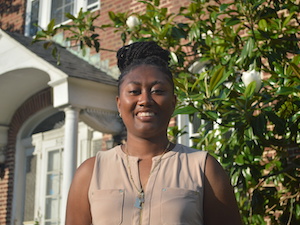 Abigail Quashie | St. Francis Neighborhood Center
Abigail Quashie | St. Francis Neighborhood Center
At the beginning of the summer, I had two main goals for this internship. One short term and one long term. I knew that I was going to be working on service-learning projects with some of the kids in the camp, and I wanted to take extra steps to make sure my lessons were engaging. I wanted to have activities and make the projects interactive because that was something that I struggled with at my job last summer. That goal is still the same and I feel like I have been actively taking steps to meet it, but I am not there yet. I have been listening to the teachers and including brain breaks in my lessons. I include drawing in almost all of my lessons and I look up classroom activity ideas and try to incorporate them. I know that I could do a bit better though, and after my most recent meeting with my supervisor, I am going to try and make the lessons more dynamic. That means chunking up the time differently and including a wide variety of activities and teaching aids instead of just drawing, some videos, and 1 or 2 games. Hopefully, by the end of the summer, I will be able to say that I know how to balance a lesson properly and make them engaging but still educational.
The bigger, more long-term goal was to explore a career area that was different from the one that I had my mind made up on and see if I could learn more about my passions. At the end of the school year, I felt a bit confused ( like a lot of college students) because I came into college knowing that I was moving in one direction. Since then, I have not felt too sure about that path, and I have been questioning what my passions in my life and alternative career paths are because I am so scared of making the wrong decision. I am still really far away from accomplishing this goal and I am not sure this is a goal that can ever be accomplished. I have had great conversations with the people in the office about their different career paths, but it is confusing me more.
This summer has been fairly good for achieving my goals and I am looking forward to my end-of-semester check.
